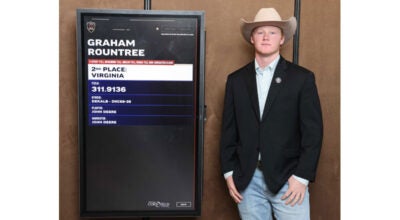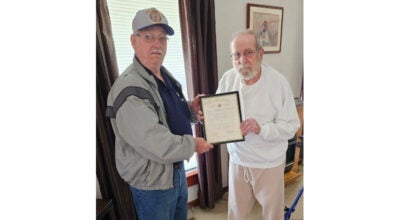Unpaid bills cause concern
Published 7:59 am Saturday, January 30, 2010
FRANKLIN—Before the City Council voted to approve a rate increase for Franklin Power and Light customers last Monday, residents questioned what appeared to be a shockingly large amount of money owed to the city in delinquent utility bills.
Franklin resident Don Blythe had contacted City Attorney Taylor Williams for information about the amount of money owed in delinquent utility bills. The city bundles charges for electricity, water, sewer and garbage pickup in one bill. The information Blythe received showed that, as of Jan. 21, the city was owed more than $1.3 million in active accounts and another $1.3 million in inactive accounts.
Active delinquent accounts are those that are still receiving service, while inactive accounts are no longer receiving service, either at the request of the customer or because of nonpayment, or the city has determined that the customer is no longer at the address.
“When you look at this, the flag goes up,” Blythe told the City Council. “Why hasn’t the city been assigning someone to collect this money, putting the revenue back into the city, instead of coming around to the ones that are paying every month?”
However, Williams said because of the billing cycle, the amount owed in active accounts originally provided to Blythe didn’t tell the whole story.
“That was kind of eye-popping, but we took the snapshot at the critically wrong time because the bills had just been sent out,” Williams said, noting that the amount owed on active accounts had dropped to a little more than $750,000 by Tuesday morning, as payments were received and entered into the system.
“It changes almost hourly,” he said of the amount owed on active accounts. “It’s always coming down.”
Another factor that wasn’t originally considered was the fact that a number of the city’s customers receive fuel assistance through Social Services.
“I was advised that we’re waiting for almost $250,000 in fuel assistance payments from the state, so our active accounts balance is ballooned by the fact that we’re waiting on the fuel assistance checks,” Williams said.
Once an account is in default, Williams said the best way for the city to collect is to look to the customer’s deposit.
If the deposit doesn’t cover the entire costs and cutoff has occurred, the city still bills the customer on a monthly basis and can use tax offsets, or could file a civil suit to obtain a judgment against the person.
Williams said that the city billed $1.2 million in utility charges in December, and as of Jan. 26, a little more than $43,300 was owed on the December bills.
“When you work that into a percentage, we had collected 97 percent of what we billed,” he said. “That’s not a bad percentage … I think most businesses would like to have 97 percent collections on their accounts.”
Williams said there would always be “a certain percentage of accounts” that isn’t collected because of bankruptcies, deaths and people who move away without leaving contact information.





